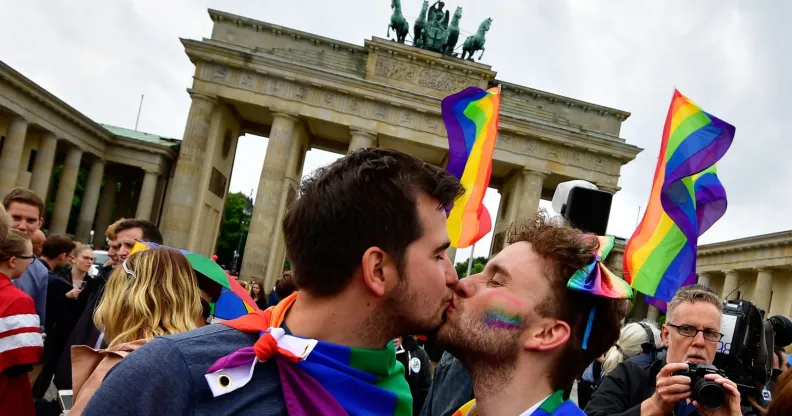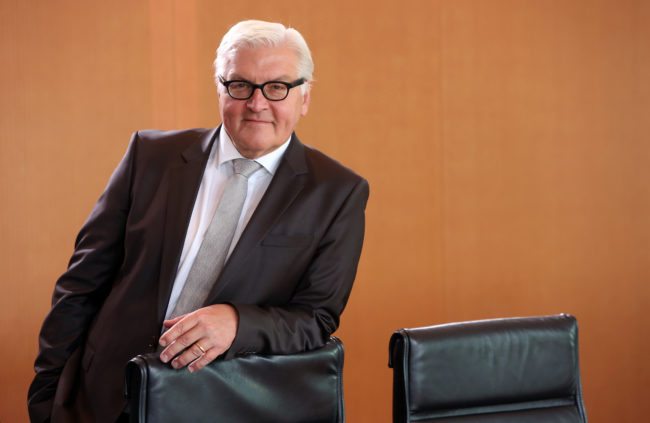Germany to begin gay weddings in October

(TOBIAS SCHWARZ/AFP/Getty)
Germany’s President Frank-Walter Steinmeier has signed the country’s equal marriage law.
Equal marriage passed through the lower house in the German Parliament last month, after Chancellor Angela Merkel caved in to demands from opposition parties.
The country’s right-wing Chancellor, who has blocked equal marriage for more than a decade, reversed her long-standing policy to allowed her own MPs to vote with their conscience on the issue.
Though Merkel still cast her own vote against the law, it gathered enough support to sail through Parliament by a vote of 393-29

Today, the county’s President Frank-Walter Steinmeier signed the law, paving the way for the law to come into force on October 1.
The date is just days after the country’s federal election, which takes place on September 24.
However, it could still face delays from a legal challenge, with some diehard anti-LGBT campaigners insisting that same-sex marriage would require a change to the constitution.
Some right-wingers within the CDU/CSU have backed a legal challenge, along with members of the far-right Alternative für Deutschland.
The sudden shift on the issue was hailed as a win for equality campaigners, who have long attacked the lack of progress in the country on the issue.
However, it also represents a clear political gamble on the part of Chancellor Merkel ahead of September’s federal elections.
Potential coalition partners had underlined equal marriage as a condition of helping to keep Merkel’s right-wing Christian Democrats in power after September’s federal election.
One by one, the Greens, the Left Party, and – most significantly – the centre-left junior partner in Merkel’s grand coalition, the Social Democratic Party – have made their positions clear.
The SPD had insisted that any future government would have to bring in equal marriage within 100 days as a condition for their participation.
By getting out ahead of the issue, Merkel has avoided some grief down the road, and has ensured her party gets some of the credit.
However, she also risked stirring trouble among some of her own right-wing supporters.
Merkel previously credited her partial evolution on LGBT issues to a lesbian couple, who convinced her to stop blocking progress on LGBT rights.
She recalled: “I had a life-changing experience in my home constituency.”
The leader told the audience that she had been invited to dinner with a lesbian couple who were looking after eight foster children.
The Chancellor saw that the children were well cared for, and realised that her beliefs were unfounded.
She said: “If the youth welfare service entrusts a lesbian couple with eight foster children, then the state could no longer use child welfare as an argument against adoptions.”
The move follows decisions to open the country’s borders to those fleeing the gay purge in Chechnya and annul the convictions of 50,000 men sentenced for homosexuality under a Nazi-era law.

